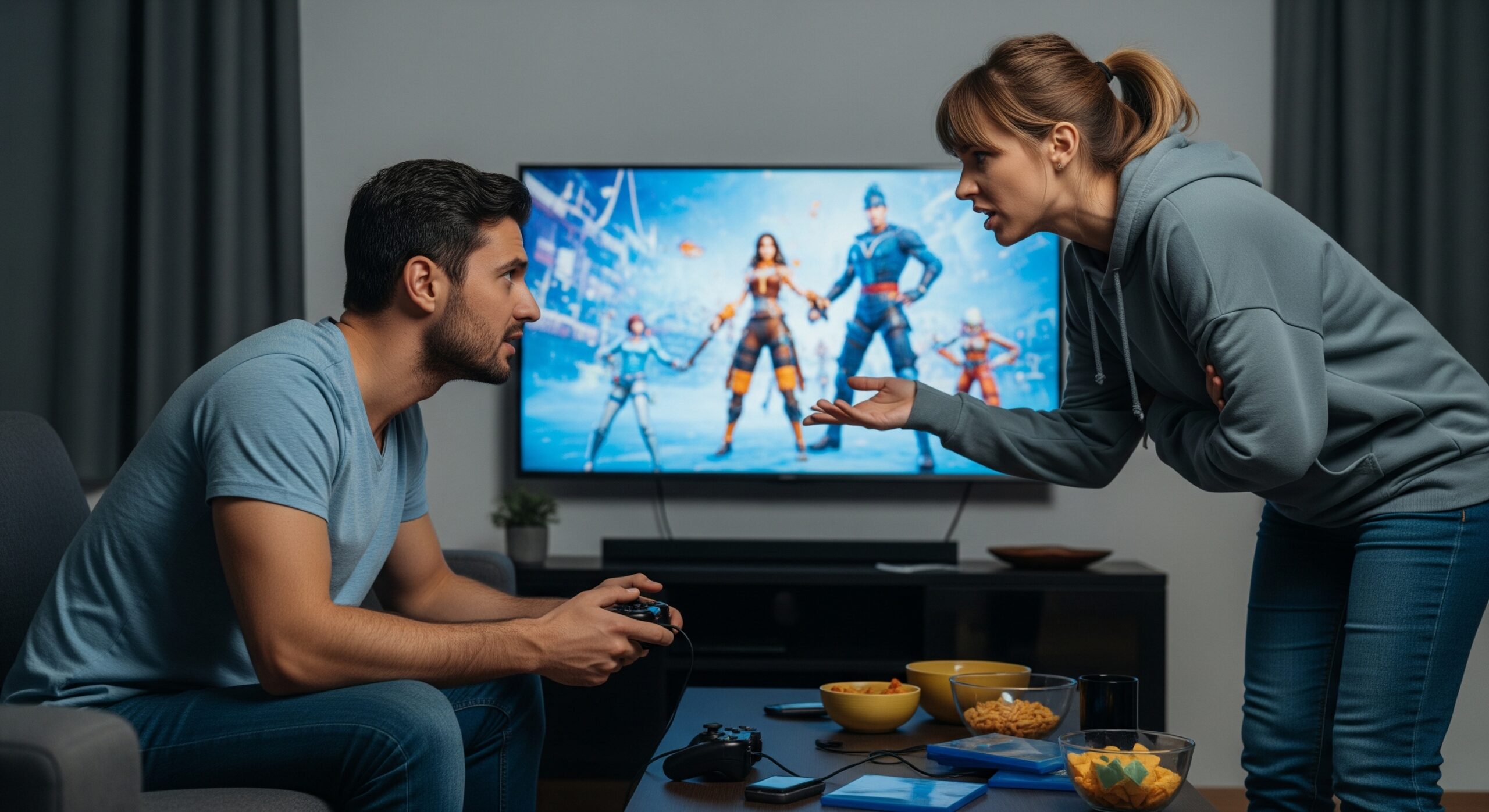For many, video gaming is a beloved pastime, a way to relax, connect with friends, and explore imaginative worlds. Yet, in the realm of dating and general perception, it sometimes carries an unwarranted stigma, often labeled a “red flag.” Some argue that gaming detracts from life, suggesting “more productive” hobbies like carpentry or automotive work. But is this perception fair, or is it based on misconceptions? Let’s dive into the data and challenge these outdated notions.
Challenging Misconceptions About Gaming Hours
One of the most common criticisms leveled against gamers is the perceived excessive amount of time spent on their hobby. However, the reality for the average gamer is far from the extreme.
| Generation (Age Range) | Most Common Weekly Gaming Hours |
| Gen Z (16-24) | 3-7 hours |
| Millennials (25-44) | 13+ hours |
| Gen X (45-54) | 3-7 hours |
| Boomers (55+) | 1-3 hours |
Source: CenturyLinkQuote Gaming Survey Results 2023
As you can see, the average gamer typically spends a reasonable amount of time on their hobby, comparable to or even less than other leisure activities. This challenges the idea that gaming inherently consumes an inordinate amount of one’s life.
The Cost of Gaming vs. Other Hobbies
Another area of concern for some is the perceived high cost of gaming. While initial console or PC investments can be significant, the annual cost of gaming can be surprisingly competitive compared to other popular hobbies.
| Hobby | Estimated Annual Cost |
|---|---|
| Video Gaming (digital purchases, subscriptions) | $300 – $700 |
| Woodworking (materials, tools, workshops) | $500 – $1,500+ |
| Automotive Restoration (parts, tools, specialized services) | $1,000 – $5,000+ |
| Golf (green fees, equipment, lessons) | $800 – $2,000+ |
| Photography (equipment, printing, courses) | $400 – $1,200+ |
(Note: Costs can vary widely depending on dedication, skill level, and premium choices within each hobby.)
When looking at annual expenditure, gaming can be a relatively affordable hobby, especially if one opts for digital sales, free-to-play titles, and utilizes subscription services that offer a vast library of games.
The Versatility of Gaming
Unlike many outdoor or specialized hobbies, gaming offers unparalleled versatility, making it an ideal activity for a wide range of circumstances:
- Weather-Independent: Rain, snow, or scorching heat – gaming can be enjoyed comfortably indoors, regardless of the elements.
- Accessible Anytime: Gaming can be done at any hour, making it a perfect wind-down activity after a long day, even after young children have gone to bed. This flexibility is a significant advantage for those with busy schedules.
- Social Connection: Modern gaming often involves online multiplayer, fostering strong social connections and friendships that transcend geographical boundaries. It’s a vibrant community where individuals can bond over shared interests.
Other considerations
When evaluating gaming as a potential “red flag” in a relationship, it’s crucial to move beyond superficial assumptions and delve into the nuances of the hobby. Examining data on average time spent gaming can provide a baseline understanding, but this quantitative measure alone doesn’t paint a complete picture. The critical distinction lies between problematic or addictive gaming, where the activity overtakes life responsibilities and relationships, and casual or intermediate gaming, which functions as a healthy hobby. Just like any other pastime, it’s the degree and impact of engagement that truly matter.
Furthermore, gaming often presents a unique advantage for parents of young children. Unlike hobbies that involve dangerous tools or require time-consuming trips to a golf course, many video games can be safely enjoyed at home with children, fostering shared experiences and bonding. This accessibility makes it a far more feasible leisure activity for parents with limited free time or childcare options. It challenges the stereotype of the isolated gamer and instead highlights its potential for family engagement. And it does not have to eliminate the time for playing sports, enjoying nature, or other outdoor activities. Gaming can be done during extreme cold or heat or heavy rain.
The enduring stigma and stereotypes surrounding gamers frequently fail to align with reality. The idea of a gamer as an unathletic, economically unsuccessful recluse is a relic of the past. Today’s gaming community is incredibly diverse, encompassing individuals from all walks of life, professions, and socio-economic backgrounds. There are gamers who are doctors, athletes, business owners, and artists, demonstrating a wide variation in careers, athletic ability, and economic success that shatters outdated preconceptions.
Finally, the timing of gaming within a daily routine can significantly impact its perceived “red flag” status. There’s a considerable difference between someone gaming throughout the day, potentially neglecting responsibilities, and someone who dedicates time to gaming later at night after children or other household members have gone to sleep. The latter scenario often reflects responsible time management, allowing for personal enjoyment without infringing upon shared family or relationship time. Understanding these distinctions is vital for a fair and accurate assessment of gaming’s role in a relationship.
Conclusion: Re-evaluating the “Red Flag”
The idea of video gaming as a “red flag” in dating or in general is largely based on outdated stereotypes and a lack of understanding. When examined through the lens of actual data and practical considerations, gaming proves to be a flexible, often affordable, and socially engaging hobby.
Like any pastime, moderation and balance are key. What truly matters in a partner, or in anyone, is their ability to balance their passions with other responsibilities, maintain healthy relationships, and contribute positively to their life and the lives of those around them. Judging a hobby without understanding its nuances does a disservice to the individuals who enjoy it and perpetuates unfair biases.
Instead of dismissing gaming as a “red flag,” perhaps it’s time to recognize it as a legitimate and often enriching part of many people’s lives.


Leave a Reply